- Home
- Lindsay Buroker
Decrypted Page 30
Decrypted Read online
Page 30
“Yes, of course,” he murmured, facing the console again.
Tikaya had been imagining—hoping—Rias would propose to her one day, but at the same time, she kept thinking that he’d have such a better life if he returned to the empire where he’d have the support of his family and friends, and where he’d be a hero instead of a target for angry Kyattese citizens. How was it anything but selfish of her to ask him to give up all that and stay with her?
“You’re not saying anything,” Rias observed. “In the world of asking for dates and proposing marriages, that’s generally a bad sign.”
“I’m wondering if it’s fair of me to ask you to choose between Turgonia and me.”
Rias glanced at her. “What do you mean?”
“Well, I’ve talked to Milvet, and I see how you are around the Turgonian expats, or rather how they are around you. I believe it’d be feasible for you to return to Turgonia and recruit the men you’d need to take back your lands and force the emperor to return your warrior-caste status to you. You could have everything from your old life again. I feel like it’s not fair to ask you to give that up and to force you to try and find a place in a world where everyone wants you dead.”
As she spoke, Rias made adjustments at the controls and faced his console, but he kept his ear toward her. “You never asked me to choose between the worlds,” he said. “I chose of my own accord. I want to be with you, Tikaya. As for going back to the empire, I suppose if you had some notion of being the wife of a well-to-do warrior-caste gent, I could try to get my lands and title back, but... blood and battlefields, Tikaya, it’s cold there six months out of the year. Like touch-your-tongue-to-a-lamp-post-and-it’ll-be-stuck-there-until-spring cold. Then in the summer, it’s so hot, you might as well be working in a smelter. Sure spring and autumn are decent, but they’re short. I’d much rather stay here and figure out a way to make things work with your people.”
Tikaya’s jaw drooped open as he spoke. “I—it never occurred to me that you wouldn’t want to go back if you could.”
“Well, now you know. Think on it, will you, and maybe give me an answer to the other thing, too, eh?”
Tikaya recovered some of her equanimity and leaned against his chair. “I seem to remember you promising that there’d be music, a nice dinner, and candlelight if you ever proposed to me.”
“I have some dried fish in the back. As to the rest, it seems I must add to the list of items I forgot to pack. I—” Rias leaned forward and tapped a gauge. “I think we’ve reached—”
“There’s something out there,” came Mee Nar’s cry from the back.
The hull creaked and groaned again.
“Let’s level out while we check it out, shall we?” Tikaya asked. “No need to keep descending, right?”
“Already done.” Rias turned toward the starboard.
Their light played over a ridge smeared with brownish plant matter or maybe that was mud. Branches of strange seaweed and mushroom-type growths ran along the sides with wild spicules thrusting from the top. A foot-long piggish creature with numerous short stubby fins, or maybe they were legs, shuffled along the ridge, probing the mud with tentacles. Further along, something that looked like a cross between a crab and a spider hunkered in a dark nook.
“Bizarre,” Tikaya whispered, awed by the utter strangeness of the life. “How can anything live down here? I mean, if the pressure is so great that it could crush a steel hull...” She glanced at Rias, feeling a little ashamed by her lack of knowledge. She should have read that marine encyclopedia front to back before this trip.
But Rias didn’t seem any more knowledgeable than she. “They must have the same pressure within their bodies as is exerted on them from their environment, though it’s admittedly hard to fathom. With their molecules squeezed together so, they’d have reduced fluidity in their—” He shrugged. “I don’t know. They’ve adapted somehow.”
“No light makes it this far down either, does it?” Tikaya asked. “We’re below the euphotic zone. This is amazing, Rias. As far as I know, nobody has ever been able to study these creatures. The aquatic biology students and professors at the Polytechnic should be lining up to ask you for rides down here, not letting government dullards try to blow up your submarine.”
“You’re welcome to suggest that to them when we return.”
Footsteps clanged on the deck behind them.
“Find the wreck yet?” Mee Nar asked.
“Looking now,” Rias said.
“You see those fish out there? Those are the ugliest, strangest I don’t even know whats.”
“Any sign of explosives from our friends above?” Rias asked.
“I haven’t sensed any, or seen any signs that they’ve exploded down here.”
“Maybe the pressure crushed them before they could reach the ocean floor?” Tikaya suggested.
“It seems as if your people would be smart enough to compensate for that,” Rias said. “We—wait, got something. There’s a big change in the ridge topography ahead.” He checked his gauges, then peered through the viewport.
Tikaya pressed her shoulder against his, eager for a glimpse of the wreck. After all these weeks of sneaking about, searching through elusive—and missing—archives, and fighting against invisible foes, she couldn’t wait to see the source of all their troubles.
What glided into view, however, was not a ship. It was a crater. Almost hidden by a cloud of silty dirt, a huge concave gap marred the ridge. All the plant life was obliterated, and countless dead fish, squid, and other creatures Tikaya couldn’t identify floated about the area. Rocks and pebbles trickled down the sides, leaving little doubt that the crater had just been created.
“I was wondering how powerful those spheres were,” Rias muttered.
Tikaya pulled back, sickened by the view. How could her people, people who prided themselves on pursuing peaceful methods, both with other nations and with nature, make this choice? She could imagine Turgonians blowing up swaths of the countryside to test new weapons, but not the Kyattese. Her people didn’t do such things. They just... didn’t. She sat down hard.
Rias had paused the submarine long enough to pull out a scrap of paper. He scribbled an equation on it, then plugged in a few numbers.
“Are you calculating whether one of those spheres would blow us down to the South Pole if it hit?” Tikaya asked.
“Given the dampening effect the water’s pressure would have, the explosive potential is... Impressive. I didn’t think your people had any weapons like that. They didn’t hurl anything with that power at us during the war, unless you made advances during the last year when I was in exile.”
Tikaya was sure he didn’t mean to condemn her with that “you,” but it made her wince anyway. As if she’d been a part of this... “Apparently, my people are making progress.”
“Or are only willing to kill sea life and nosy intruders, not attack enemy warships with everything they’ve got.” Rias set aside his paper and took the controls in hand again. “Mee Nar, you’re still keeping a magic-seeing eye out for those spheres, right?”
“Yes,” Mee Nar said from behind Tikaya. “Your leak must be keeping them busy. I haven’t sensed anything new being dropped.
“Good, though we can’t count on that lasting long.” Rias had nudged the submarine into motion again and was watching the echo ranging display. “Something else is coming up.”
This time, Tikaya didn’t lean in for a better look. She was afraid they’d find crater upon crater down there.
“I sense something,” Mee Nar said.
Rias’s hand froze on the control lever. “Dropping from above?”
“It’s... No.” Mee Nar stood with his eyes closed, chin drooped to his chest. “It’s already at our level, and I think... Yes, I’m positive. It’s not moving.”
“A dud?” Tikaya wondered. “That dropped down but didn’t explode?”
“Are we in danger of running into it?” Rias asked.
�
��I don’t think so,” Mee Nar said. “It’s on the ridge. Or on something on the ridge. Oh, that actually might be what you’re looking for.”
Tikaya frowned. What did that mean? She poked Rias. “Get closer.”
“Weren’t you the one telling me to go back up a moment ago?” Rias asked as he guided the submarine farther along the ridge.
“That was at least five moments ago, and you didn’t take the opportunity when you had the chance. It’s been rescinded.”
A deep moan emanated from the hull, and Tikaya’s humor disappeared. Mee Nar shifted uneasily too.
“We’ve reached the end of the ridge,” Rias said. “But there’s something... Yes, there it is.”
Outside of the porthole, a lumpy shape had come into view, its form so covered in centuries of mud and silt that Tikaya wouldn’t have identified it, if not for the masts. Even they were obscured by seaweed growing up around them. The ancient ship lay on its side, no holes obvious in its hull, at least not on the half she could see. Unlike modern Turgonian ships, it lacked portholes and spaces through which cannons could fire as well. If there were oar holes—and there should be on a vessel that age—grime had long since covered them up.
Shedding light upon the ship was a six-inch-wide glowing red sphere. It perched on one of the few sections of railing that weren’t broken, waiting to explode.
CHAPTER 19
Tikaya stared at the orb. She couldn’t believe it had landed so precariously without falling off the railing. Or exploding. Yet.
“I hope it is a dud,” Rias said. “Or it’s going to be inconvenient.”
Inconvenient? Tikaya thought of the crater they’d passed, and shuddered.
“I wouldn’t touch it,” Mee Nar said. “It’s emitting a lot of power.”
“It couldn’t have been made to explode on impact.” Rias guided the submarine along the wreck, showing them more of the ancient structure, the wood impressively preserved despite all the grime and growth on and around it. “Or it would have done so when it touched down. And then there are the ones above that exploded early in their descent.”
“Maybe it’s random,” Mee Nar said.
Rias took them up and over the ridge so they could see the back side of the wreck. “Is it possible someone is up there controlling when they explode?”
Mee Nar shook his head. “That would take a great deal of concentration, concentration that would have been difficult to maintain given the leak and other excitement that must be going on up above.”
“We’ll just do our best to avoid it then.”
While the men spoke, Tikaya was scouring the wreck with her eyes, searching for the clues that had prompted the treasure hunters to pen letters to the Turgonian military. “There aren’t any holes in the hull or on what we can see of the deck. The masts aren’t even broken. What caused it to sink?”
“A good question,” Rias said. “It shows little damage from the landing too. No debris field around it. That would have been different if it’d landed on top of the ridge, but it looks like it sank into plenty of mud on the side instead.” He pointed to the bottom of the hull. “It’s about ten feet deep.”
“I assume there’s no way for us to step outside of this vessel without being crushed,” Mee Nar said. “How are we going to get in to look around?”
Rias waved to the back. “The cutting tool wasn’t completely destroyed by the shark attack. We should be able to bore a hole in the hull.”
“One wide enough for us to pass through?” Tikaya asked. “Would that even be possible? This ship looks to be in better shape than the two-year-old ones in the harbor.”
“Yes, from what we’ve seen so far, it’s in pristine condition.” Rias slowed the submarine to a stop—they’d circled the wreck and come back to the sphere, which glowed ominously at them, like a guard dog growling at the gate of a junkyard.
Tikaya gave a short laugh. “Are we sure it’s the right ship?”
“Oh, yes,” Rias said. “That’s a colonial era penteconter. I had a model of one as a boy. The oars must be around somewhere, buried under the silt perhaps.”
“Time,” Mee Nar said.
“You sense something?” Tikaya asked.
“The Kyattese ship is heading back to its position above the wreck.”
And above us, Tikaya thought.
“Let’s cut into the hull.” Rias closed his eyes for a moment. “If my model was historically accurate, the captain’s cabin would be forward, on the port side.”
“Who’s going to do the cutting?” Tikaya feared she already knew the answer to her question, and she eyed the sphere warily.
“You have as much experience as I do at this point,” Rias said.
“And rather less experience navigating.” Tikaya sighed and headed for the science station again. “Mee Nar, let me know... Give me a warning if you can.” She feared that if the sphere fell off the railing, or randomly decided it’d found the right moment to explode, there wouldn’t be time for a warning.
“I’ll try.” Mee Nar sounded even less optimistic than she felt.
Tikaya hesitated before maneuvering the claw and cutter out of whatever storage slots Rias had built into the hull. She remembered that he’d been able to get the mine from inside to outside but doubted that would be safe at these depths. “Are you sure these cutters will work down here? Can I grab something with the claw?” Would there even be anything in there to grab? What if the pressure had destroyed whatever evidence existed inside that hull?
“The tools should work—I had my helper make them sturdy, and we didn’t use anything that’ll contract or expand,” Rias called back. “But don’t open that hatch to bring anything inside. There’s an airlock, and it should technically work, but if you find something just hold onto it with the pincer, and we’ll go back to the surface to—”
Mee Nar interrupted him. Tikaya couldn’t hear what he said, but she could guess. The Kyattese ship was up to something.
She slid the cutting tool out of its cubbyhole. It took more effort to move it through the sluggish water down there, and the shark’s attack had left it with a wobble, but she managed to get the saw to the ancient hull. She held her breath when she started it up, but the sharp blade bored into the wood. Wood and centuries’ worth of ocean gunk. The saw’s bites stirred up a grayish-brown cloud, and soon Tikaya couldn’t see a thing outside the porthole.
“Great,” she said. “I couldn’t cut a decent circle even when I could see what I was doing.”
“Easy,” Rias warned. “The sphere is wobbling.”
Tikaya gulped and slowed down. They’d attributed randomness to the timing of those explosives, but maybe they weren’t granting those practitioners up there enough skill. What if that one had been sent down and placed precisely there to act as a booby trap? Disturb it and...
She shook her head and focused on her work. It was slow going. There was no way she could cut a hole large enough for the submarine to float through, especially not with that sphere poised to fall. She could only hope that they’d be able to find something helpful when they opened up the hull. If nothing else, she could cut a few smaller holes, and they could check various spots.
The hull of the Freedom moaned again. Tikaya eyed the walls warily. She told herself they were level, not going any deeper, so nothing should snap now. Despite the chilly air, she caught herself wiping sweat off her brow.
“Your progress?” Mee Nar asked from the hatchway.
“Hard to say. I can’t see much. Tell Rias to make a saw that can suck up the dust it makes next time.”
Mee Nar grunted and withdrew.
Abruptly, the resistance vanished, and she was cutting through air. Had she succeeded in slicing out a circle?
Tikaya pulled the tool out and squinted, trying to see through the haze. Guessing as to the outline of her cutaway, she gave the hull a poke with the saw. A ragged oval fell inward. A cloud of sediment and debris shot up, and Tikaya winced. She should have grabbed the
cutout with the claw, not pushed it in.
Something dark shot out, bumping into her porthole. She stumbled back, fearing some new attack, but it was only one of those misshapen fish. It righted itself and flitted away.
Tikaya found the directional controls for the lamp, and angled the light into the hole. Rias had guessed right; it was a cabin, though she had no way to tell if it had belonged to the captain. It did seem to be on the larger side, though she couldn’t see from wall to wall. She wished they could get closer, but with that booby trap waiting to fall, they dared not bump the craft.
A few dark humps were all that remained of the cabin’s furnishings. Mollusks or other creatures that ate wood must have devoured them over time. Her hopes of finding anything useful faded.
“What’s the hull made from?” Tikaya called. Now that she’d seen the lack of furnishings, she was surprised the outer shell of the ship remained intact. Perhaps the paint or whatever varnish they’d used back then had protected it.
“Teak was abundant in Nuria,” Rias responded. “That’d be my guess. Is there anything left in the cabin?”
Tikaya extended the claw tool to its maximum reach and probed around at deck level on either side of the hole. Since she couldn’t change her position to see more of the interior, blind groping was the best she could manage. The claw did bump against things on either side. She fumbled about, trying to find a grip so she could drag one of the items into view. Though Rias had failed to adorn the science station with a clock, Tikaya was aware of the seconds ticking past.
When she succeeded in hooking something, she pulled it out carefully. And warily. She thought of the bones in the cave and had visions of dragging out a seven-hundred-year-old skeleton. But, no, there was too much life about down here for that. Something would have eaten the human remains long ago. Not exactly a comforting thought.
Tikaya eased her find into the light and discovered it was... a ceramic wine amphora.
“Wonderful,” she muttered.
She couldn’t work up any archaeological interest in the artifact; she’d seen dozens, if not hundreds, of similar amphoras, so unless ancient secrets were etched on the sides, somewhere beneath the centuries of gathered grime, she doubted they’d found anything useful. She set it down and probed for something else.

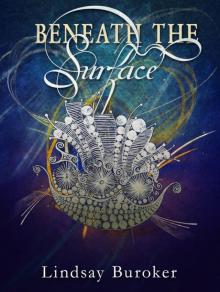 Beneath the Surface
Beneath the Surface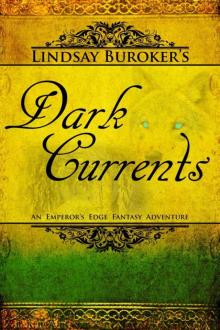 Dark Currents
Dark Currents The Dragon Blood Collection, Books 1-3
The Dragon Blood Collection, Books 1-3![Hunted [The Flash Gold Chronicles] Read online](http://i1.bookreadfree.com/16/hunted_[the_flash_gold_chronicles]_preview.jpg) Hunted [The Flash Gold Chronicles]
Hunted [The Flash Gold Chronicles]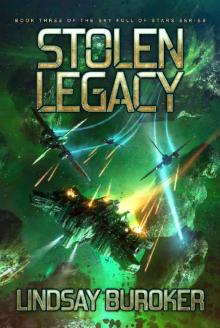 Stolen Legacy
Stolen Legacy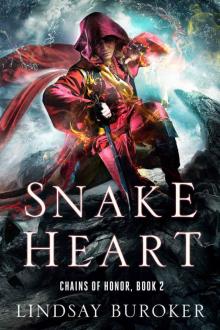 Snake Heart
Snake Heart Shattered Past
Shattered Past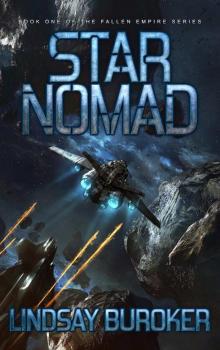 Star Nomad
Star Nomad Patterns in the Dark
Patterns in the Dark Torrent
Torrent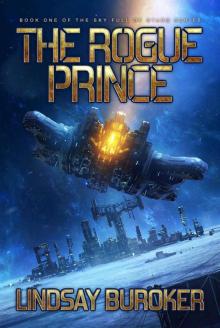 The Rogue Prince
The Rogue Prince Forged in Blood II
Forged in Blood II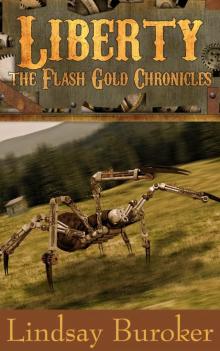 Liberty
Liberty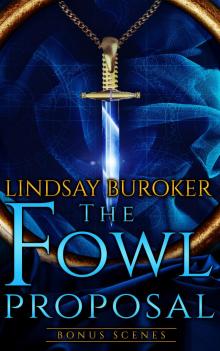 The Fowl Proposal Bonus Scenes
The Fowl Proposal Bonus Scenes Forged in Blood I
Forged in Blood I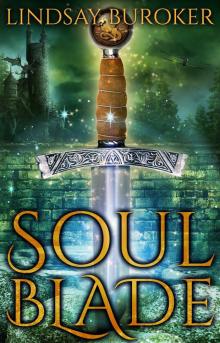 Soulblade
Soulblade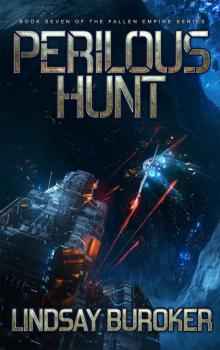 Perilous Hunt
Perilous Hunt 05 Dragon Blood: The Blade's Memory
05 Dragon Blood: The Blade's Memory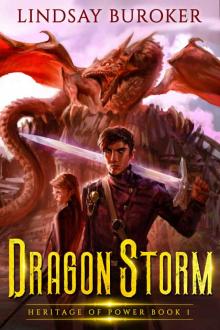 Dragon Storm
Dragon Storm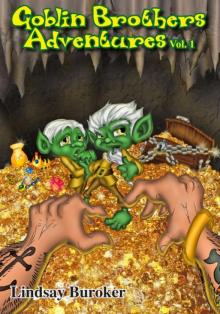 The Goblin Brothers Adventures
The Goblin Brothers Adventures Republic
Republic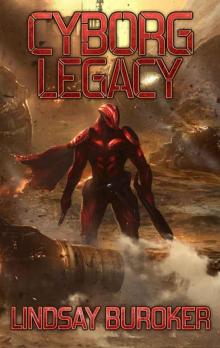 Cyborg Legacy
Cyborg Legacy Origins
Origins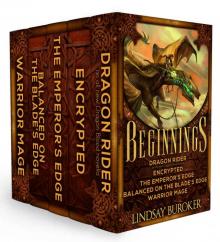 Beginnings: Five Heroic Fantasy Adventure Novels
Beginnings: Five Heroic Fantasy Adventure Novels Warrior Mage
Warrior Mage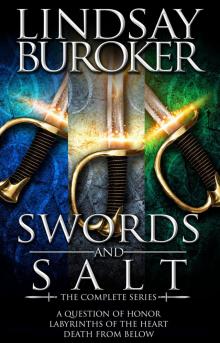 Swords and Salt - the Complete Series
Swords and Salt - the Complete Series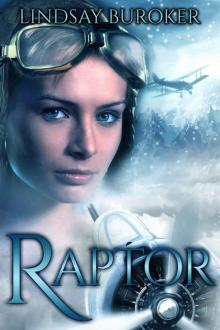 6.0 - Raptor
6.0 - Raptor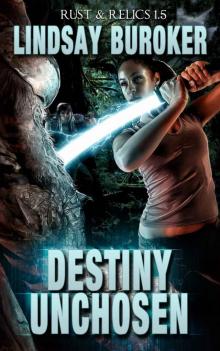 Destiny Unchosen
Destiny Unchosen Balanced on the Blade's Edge
Balanced on the Blade's Edge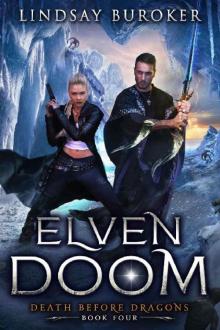 Elven Doom (Death Before Dragons Book 4)
Elven Doom (Death Before Dragons Book 4)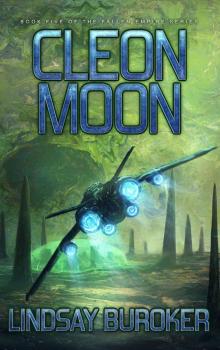 Cleon Moon
Cleon Moon Oaths (Dragon Blood, Book 8)
Oaths (Dragon Blood, Book 8)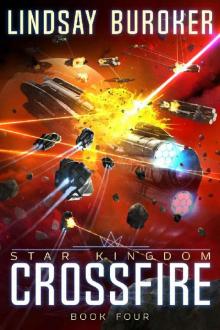 Crossfire (Star Kingdom Book 4)
Crossfire (Star Kingdom Book 4)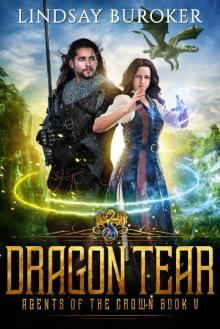 Dragon Tear (Agents of the Crown Book 5)
Dragon Tear (Agents of the Crown Book 5)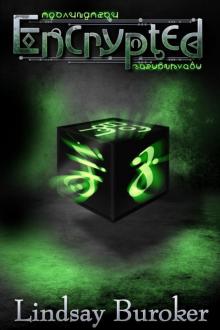 Encrypted
Encrypted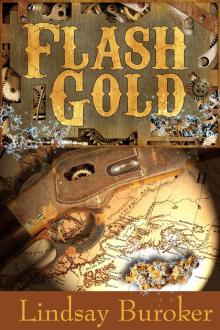 Flash Gold
Flash Gold Enigma
Enigma_preview.jpg) Shadows Over Innocence (an Emperor's Edge short story)
Shadows Over Innocence (an Emperor's Edge short story)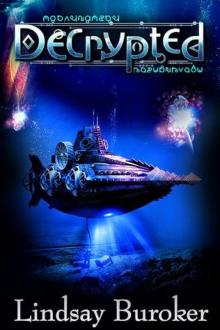 Decrypted
Decrypted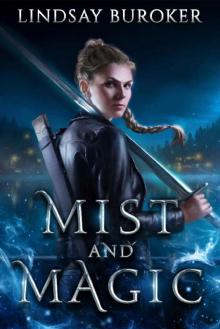 Mist and Magic
Mist and Magic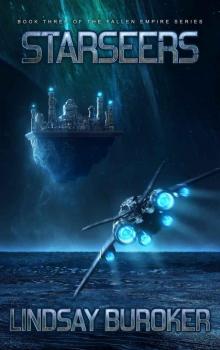 Starseers
Starseers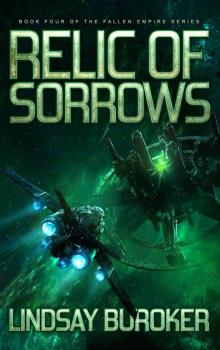 Relic of Sorrows
Relic of Sorrows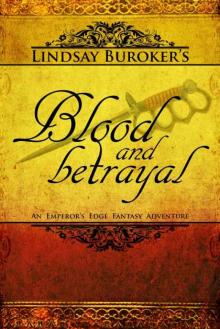 Blood and Betrayal
Blood and Betrayal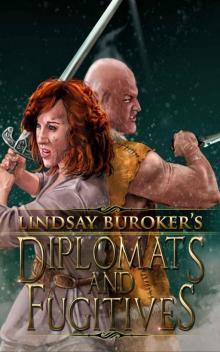 Diplomats and Fugitives
Diplomats and Fugitives_preview.jpg) Balanced on the Blade's Edge (Dragon Blood, Book 1)
Balanced on the Blade's Edge (Dragon Blood, Book 1) The Emperor's Edge, no. 1
The Emperor's Edge, no. 1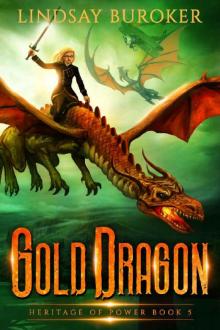 Gold Dragon
Gold Dragon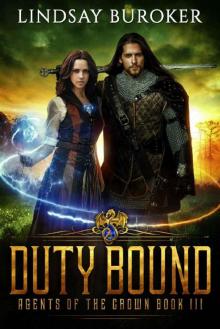 Duty Bound
Duty Bound Secrets of the Sword 2 (Death Before Dragons Book 8)
Secrets of the Sword 2 (Death Before Dragons Book 8) Peacemaker
Peacemaker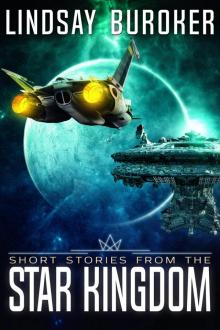 Short Stories from the Star Kingdom
Short Stories from the Star Kingdom Shockwave
Shockwave Degrees of Delusion
Degrees of Delusion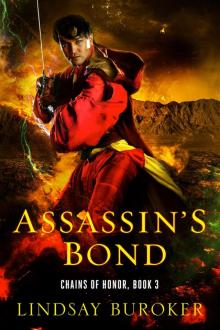 Assassin's Bond (Chains of Honor, Book 3)
Assassin's Bond (Chains of Honor, Book 3)_preview.jpg) The Emperor's Edge (a high fantasy mystery in an era of steam)
The Emperor's Edge (a high fantasy mystery in an era of steam)_preview.jpg) Solstice Day Gifts (an Emperor's Edge Short Story)
Solstice Day Gifts (an Emperor's Edge Short Story) Fractured Stars
Fractured Stars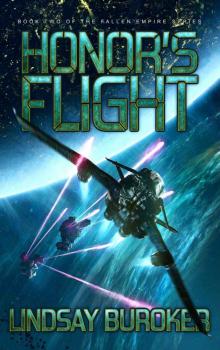 Honor's Flight
Honor's Flight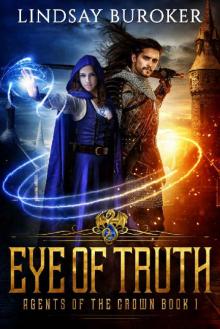 Eye of Truth
Eye of Truth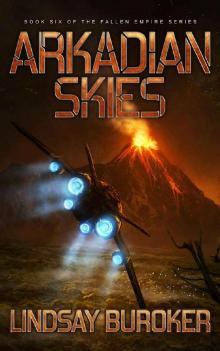 Arkadian Skies
Arkadian Skies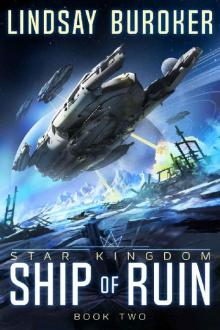 Ship of Ruin
Ship of Ruin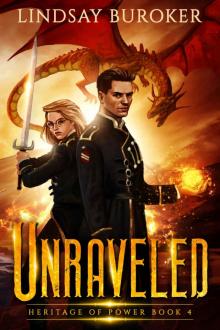 Unraveled
Unraveled Blood Ties
Blood Ties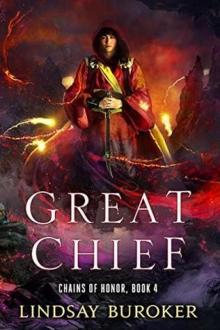 Great Chief
Great Chief End Game
End Game Conspiracy
Conspiracy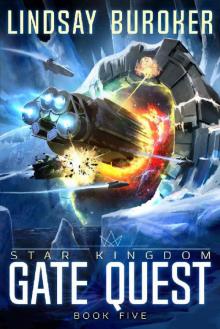 Gate Quest (Star Kingdom Book 5)
Gate Quest (Star Kingdom Book 5)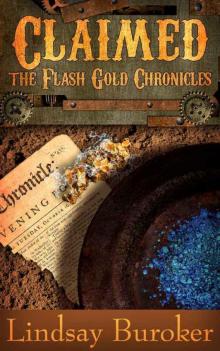 Claimed
Claimed Under the Ice Blades
Under the Ice Blades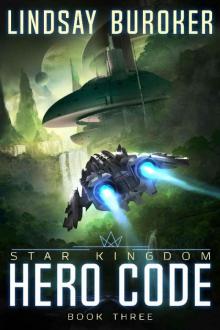 Hero Code
Hero Code Battle Bond: An Urban Fantasy Dragon Series (Death Before Dragons Book 2)
Battle Bond: An Urban Fantasy Dragon Series (Death Before Dragons Book 2) Blood Charged
Blood Charged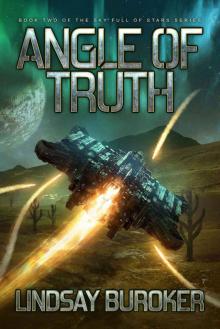 Angle of Truth
Angle of Truth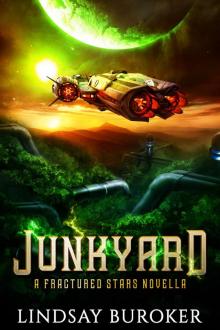 Junkyard
Junkyard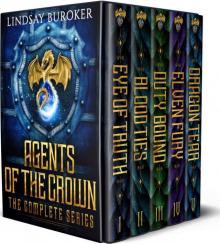 Agents of the Crown- The Complete Series
Agents of the Crown- The Complete Series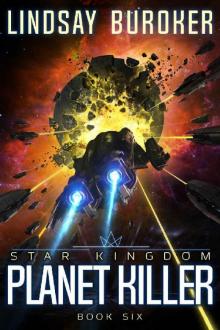 Planet Killer (Star Kingdom Book 6)
Planet Killer (Star Kingdom Book 6) Shadows Over Innocence
Shadows Over Innocence Forged in Blood I ee-6
Forged in Blood I ee-6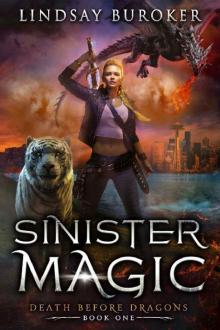 Sinister Magic: An Urban Fantasy Dragon Series (Death Before Dragons Book 1)
Sinister Magic: An Urban Fantasy Dragon Series (Death Before Dragons Book 1)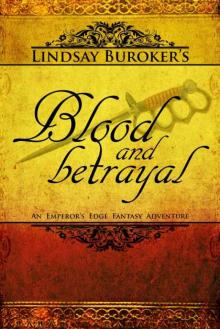 Blood and Betrayal (The Emperor's Edge Book 5)
Blood and Betrayal (The Emperor's Edge Book 5)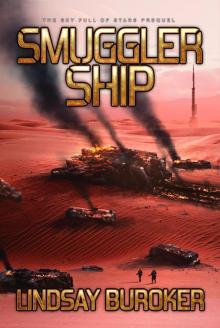 Smuggler Ship
Smuggler Ship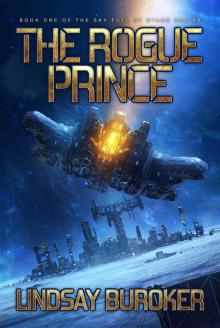 The Rogue Prince (Sky Full of Stars, Book 1)
The Rogue Prince (Sky Full of Stars, Book 1) The Emperor's Edge (a high fantasy adventure in an era of steam)
The Emperor's Edge (a high fantasy adventure in an era of steam)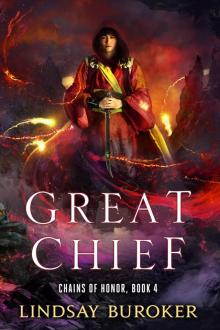 Great Chief (Chains of Honor, Book 4)
Great Chief (Chains of Honor, Book 4)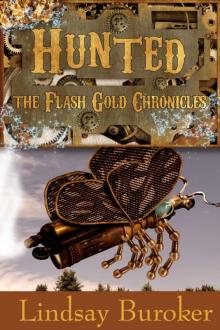 Hunted fgc-2
Hunted fgc-2 Shadows Over Innocence (emperor's edge)
Shadows Over Innocence (emperor's edge)![[Fallen Empire 00.5 - 03.0] Star Nomad Honor's Flight Starfall Station Starseers Last Command Read online](http://i1.bookreadfree.com/i/03/22/fallen_empire_00_5_-_03_0_star_nomad_hon_starfall_station_starseers_last_command_preview.jpg) [Fallen Empire 00.5 - 03.0] Star Nomad Honor's Flight Starfall Station Starseers Last Command
[Fallen Empire 00.5 - 03.0] Star Nomad Honor's Flight Starfall Station Starseers Last Command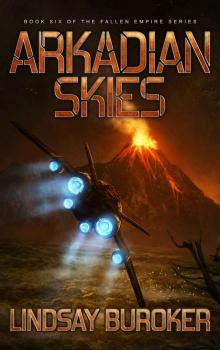 Arkadian Skies: Fallen Empire, Book 6
Arkadian Skies: Fallen Empire, Book 6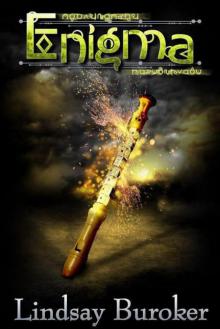 Enigma (emperor's edge)
Enigma (emperor's edge)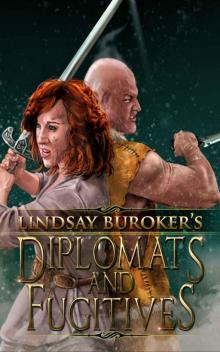 Diplomats and Fugitives (The Emperor's Edge Book 9)
Diplomats and Fugitives (The Emperor's Edge Book 9) The Emperor's edge tee-1
The Emperor's edge tee-1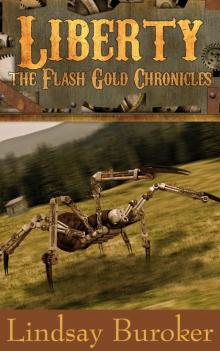 Liberty (Flash Gold, #5)
Liberty (Flash Gold, #5)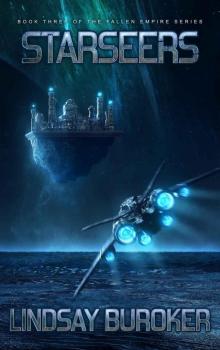 Starseers: Fallen Empire, Book 3
Starseers: Fallen Empire, Book 3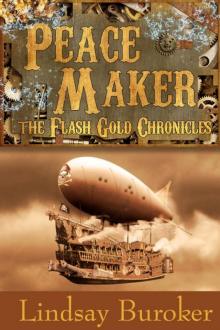 Peacemaker fgc-3
Peacemaker fgc-3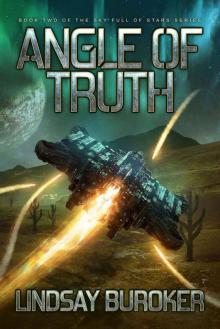 Angle of Truth (Sky Full of Stars, Book 2)
Angle of Truth (Sky Full of Stars, Book 2)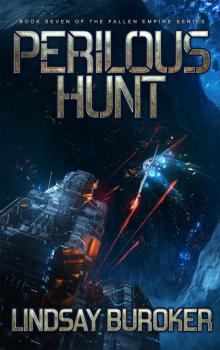 Perilous Hunt: Fallen Empire, Book 7
Perilous Hunt: Fallen Empire, Book 7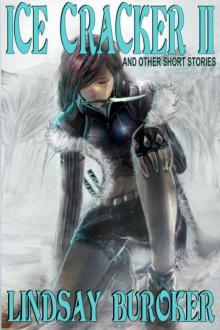 Ice Cracker II (emperor's edge)
Ice Cracker II (emperor's edge)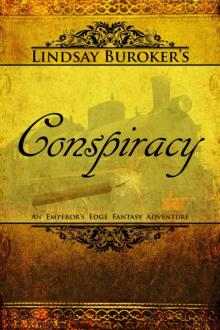 Conspiracy (The Emperor's Edge Book 4)
Conspiracy (The Emperor's Edge Book 4)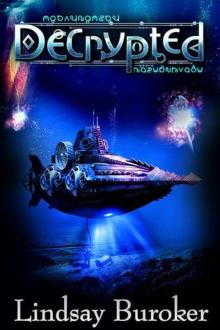 Decrypted (Encrypted #2)
Decrypted (Encrypted #2) Forgotten Ages (The Complete Series)
Forgotten Ages (The Complete Series)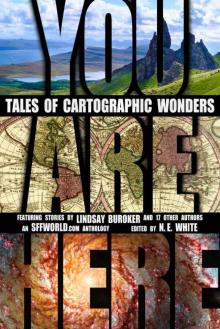 You Are Here: Tales of Cartographic Wonders
You Are Here: Tales of Cartographic Wonders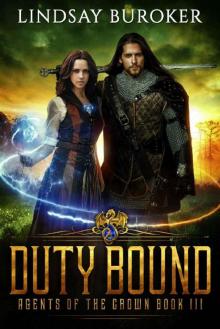 Duty Bound (Agents of the Crown Book 3)
Duty Bound (Agents of the Crown Book 3)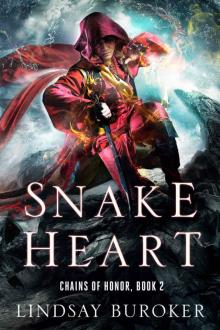 Snake Heart (Chains of Honor Book 2)
Snake Heart (Chains of Honor Book 2)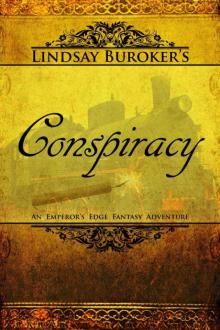 Conspiracy ee-4
Conspiracy ee-4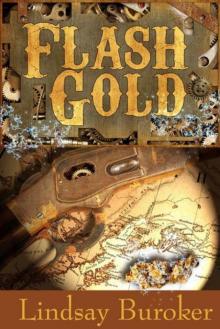 Flash Gold fgc-1
Flash Gold fgc-1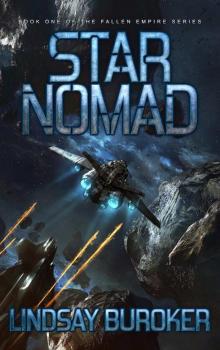 Fallen Empire 1: Star Nomad
Fallen Empire 1: Star Nomad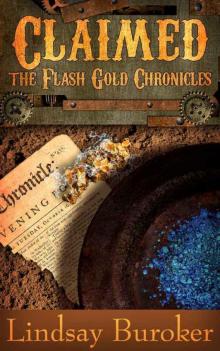 Claimed (The Flash Gold Chronicles, #4)
Claimed (The Flash Gold Chronicles, #4)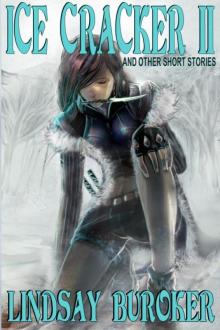 Ice Cracker II (and other short stories) (The Emperor's Edge)
Ice Cracker II (and other short stories) (The Emperor's Edge)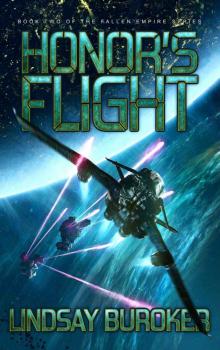 Fallen Empire 2: Honor's Flight
Fallen Empire 2: Honor's Flight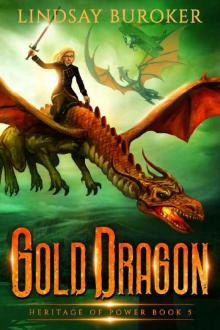 Gold Dragon (Heritage of Power Book 5)
Gold Dragon (Heritage of Power Book 5)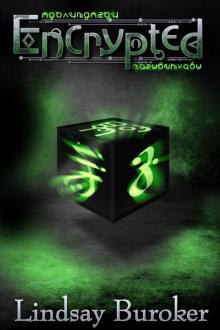 Encrypted (the emperor's edge)
Encrypted (the emperor's edge)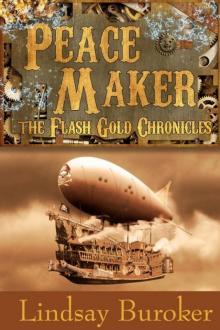 Peacemaker (The Flash Gold Chronicles, #3)
Peacemaker (The Flash Gold Chronicles, #3) Patterns in the Dark (Dragon Blood Book 4)
Patterns in the Dark (Dragon Blood Book 4)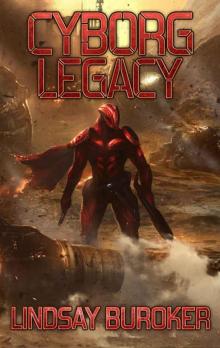 Cyborg Legacy: A Fallen Empire Novel
Cyborg Legacy: A Fallen Empire Novel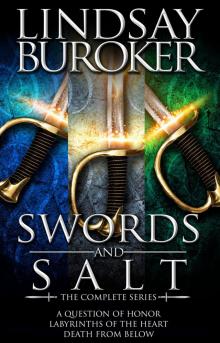 The Swords & Salt Collection
The Swords & Salt Collection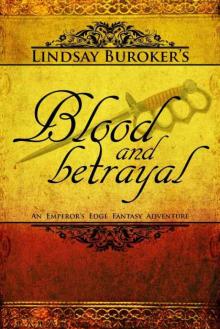 Blood and Betrayal ee-5
Blood and Betrayal ee-5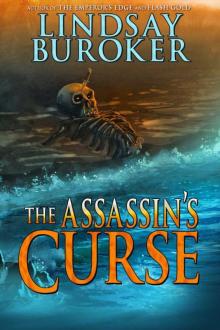 The assassin curse
The assassin curse Warrior Mage (Book 1)
Warrior Mage (Book 1) Forged in Blood II ee-7
Forged in Blood II ee-7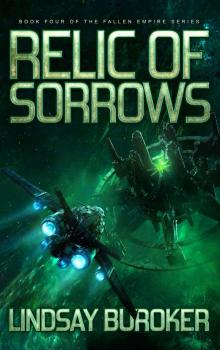 Relic of Sorrows: Fallen Empire, Book 4
Relic of Sorrows: Fallen Empire, Book 4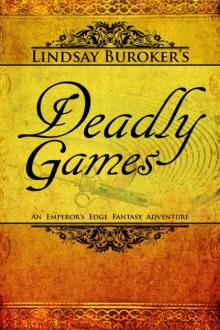 Deadly Games ee-3
Deadly Games ee-3 Elven Fury (Agents of the Crown Book 4)
Elven Fury (Agents of the Crown Book 4) Torrent rar-1
Torrent rar-1